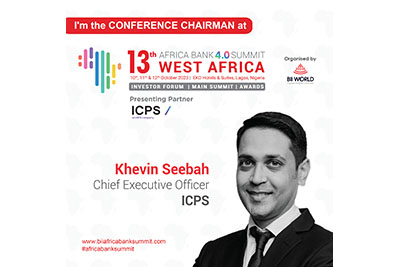How is the West Africa region responding to the adoption of latest digital solutions and payment technologies?
The West Africa region is embracing digital solutions and payment technologies with great enthusiasm. We’re witnessing a paradigm shift towards cashless transactions, driven by the convenience and efficiency offered by these technologies.
International networks have recognised this and are encouraging projects related to tokenization that come as a bridge between traditional payments and mobile payments.
How do you predict the future journey for Fintech-Bank will be this year. What are the defining changes in this relationship from the past?
The relationship between fintechs and banks has shifted dramatically from the past. We’re moving from a period of cautious experimentation to a phase of strategic partnership and co-creation.
Defining changes in this relationship include a more open mindset among banks to embrace fintech innovation. Banks are recognizing that fintechs can help them stay competitive in a rapidly evolving digital landscape.
This year, what’s left of it, we’ll likely witness deeper integrations between fintech solutions and banks’ systems, resulting in more seamless customer experiences. These collaborations are reshaping financial services, leading to the development of innovative solutions in areas such as real-time payments.
According to you, which area of the West Africa Region’s financial sector will witness remarkable innovation in the future? – and why?
- Fintech Collaborations
- Payment Innovation (Digital/Cashless/Contactless)
- Role of Advanced technology and its implementation
- Financial Inclusion
From my perspective, all four areas—Fintech Collaborations, Payment Innovation (Digital/Cashless/Contactless), Role of Advanced Technology and its Implementation, and Financial Inclusion—have the potential to witness remarkable innovation in the West Africa Region’s financial sector. However, if I were to choose one area that could have a particularly transformative impact, I would lean towards “Financial Inclusion.”
Financial Inclusion:
West Africa has a substantial portion of its population that remains underserved by traditional financial institutions. This presents a significant opportunity for innovation in driving financial inclusion. Technology, particularly mobile phones, has already made inroads into the region, even in remote areas. Leveraging this connectivity, fintech companies, in collaboration with banks, can develop innovative solutions to reach the unbanked and underbanked populations.
By providing access to basic financial services such as savings, payments, and credit, financial inclusion can empower individuals and small businesses, enabling them to participate more actively in the economy. This not only lifts people out of poverty but also stimulates economic growth and stability.
Innovations such as mobile money platforms, microfinance solutions, and digital wallets can bridge the gap between traditional financial services and those that were previously excluded. By utilizing these technologies, financial institutions can offer low-cost and easily accessible services to even the most remote areas.
Moreover, fostering financial inclusion aligns with broader social and economic development goals. As people gain access to formal financial services, they are better equipped to plan for the future, manage emergencies, and invest in education and health.
In conclusion, while all the mentioned areas hold promise for innovation in West Africa’s financial sector, “Financial Inclusion” stands out due to its potential to make a profound impact on individuals, communities, and the region’s economic growth.
With reference to the insights you shared at the event – how relevant and important you feel is the topic that you addressed.
The topic “Financial Inclusion” is highly relevant and crucial. It addresses the vital need to extend access to financial services to underserved populations. This inclusivity drives economic growth, empowers individuals, and aligns with global development goals.
How would you think attendees will benefit by attending the13th Africa Bank 4.0 Summit –West Africa?
Attendees at ABS Nigeria 2023 would gain significant benefits. They’d access industry insights, network with professionals, learn from experts, and discover innovative solutions. Expert speakers and regulatory updates ensure they stay ahead in the ever-changing financial landscape. The conference is an investment in professional growth and staying competitive.


